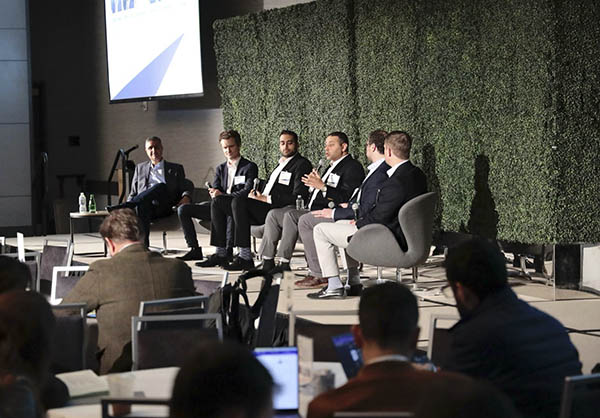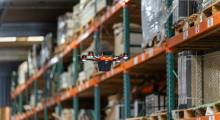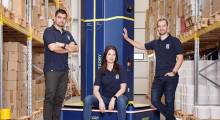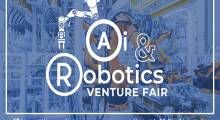PITTSBURGH—A venture capitalist has plenty to consider when investing in a robotics or artificial intelligence startup. Is the company developing a product or service that has a strong product-market fit? Does its leadership team understand the industry it is serving? How does this company's technology stand out among the competition?
The past year has undoubtedly been challenging for technology companies seeking funding, and hundreds have either shut down or reduced their headcount in response to the tough financial market. Yesterday, e-commerce company Shopify announced the sale of mobile robot maker 6 River Systems to Ocado Group. Shopify also said it was laying off 20% of its staff.
At the Cascadia Connect, Robotics, Automation, and AI event this week, a group of investors in the robotics industry discussed the economy and their considerations as part of the “ROI in RAAI: Investor Perspectives” panel.
The discussion was moderated by Firdaus Pohowalla, a managing director at Cascadia Capital who helps leads the Seattle-based bank's robotics, automation, and AI division.
The panel included investors who provide capital at various stages of the fundraising process:
- Jeremie Capron, partner and director of research at ROBO Global
- Dennis Dunegan, managing principal of Graham Partners
- Adam Kelson, partner at K&L Gates LLP
- Neel Mehta, investor at G2 Venture Partners
- Fady Saad, founder and general partner at Cybernetix Ventures
Logistics and warehouse markets are hot, and agriculture and food are growing
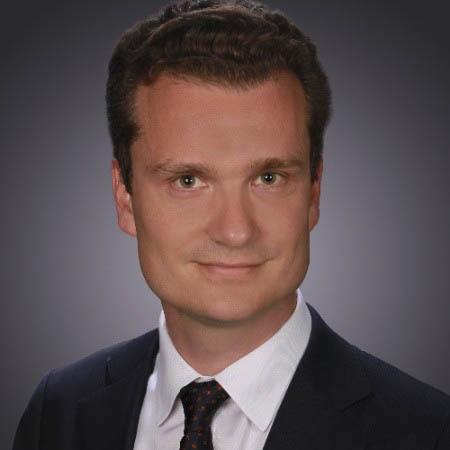
ROBO Global primarily invests in robotics, AI, and healthcare technology companies around the world. It came out with its robotics exchange-traded fund (ETF) in 2013. Today, there's around $3 billion in its index portfolios. Plus One Robotics and Outrider are a few of the robotics companies ROBO Global has invested in.
Last month, financial services company VettaFi acquired ROBO Global, bringing the total value of its indexes to more than $17 billion.
Capron noted that there is “a lot of action” in the logistics and warehouse market. Enabling technologies such as machine learning have allowed companies to provide new products and disrupt old industries.
Down the road, he said he sees great outcomes in technologies being developed for the food, agriculture, and construction industries.
But Capron said he isn't interested in investing in companies that have cool technologies but aren't solving identifiable problems.
The products have to make sense for the market, and the team creating those products should have the expertise and experience to not only develop the products, but also commercialize and scale them, Capron said.
“Ideally, as an investor, you want to look for a team that's got a more comprehensive set of skills,” he explained. “In terms of financials, we look for companies that can become great businesses in terms of the margin potential, and the ability to create moats around their business and defend them over time.”
Early-stage startups struggle to gain capital
Fady Saad discussed why he decided to start his new robotics venture capital firm Cybernetix Ventures, which provides early-stage funding for robotics companies.
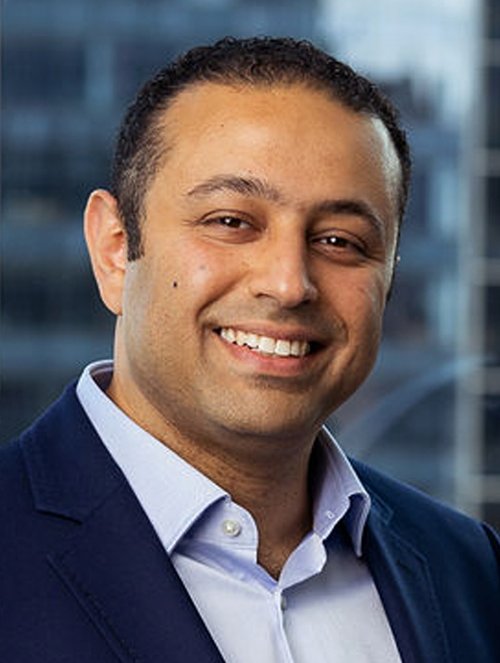
The MassRobotics co-founder said he started the business with co-founder Mark Martin because he observed that many venture capital firms were not organized or prepared to invest in early-stage startups that are looking to take their technology from a prototype to a commercial product.
When investing in a robotics company, Saad noted that he looks at three key factors: market fit, viability of the product or technology, and its leadership team.
It's important that someone on a company’s team have real market domain expertise, he noted.
“Mark and I always look for the beautiful stuff like strong founders and entrepreneurs, but in particular, we look for vertical market expertise, so if a company is looking to penetrate the construction industry, we are looking for someone on the team that has a construction background,” Saad said.
He went as far as to say that the majority of the most successful robotics companies in the business were started by people who had strong market domain expertise in the industries they were serving.
“Kiva's Mick Mountz was not a roboticist. He was a logistics consultant, so he was a guy coming from the logistics/supply chain space,” Saad said, referring to what is now Amazon Robotics. “6 River Systems was started by folks who were ex-Kiva, so again, they were coming the logistics space. Locus Robotics was started by Quiet Logistics.”
ROI potential needs to be clear and customer feedback strong
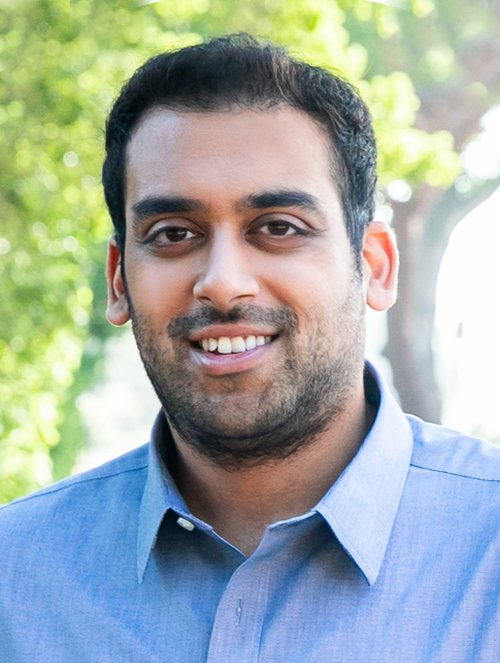
Mehta said G2 Venture Partners focuses on companies that are in a growth stage—think Series B+ funding rounds—and have demonstrated a strong return on investment (ROI) for their customers.
“A lot of our diligence as we get up to speed on companies, a lot of that comes from customer signaling,” he said. “We'll talk to key customers in this space, and we'll understand what companies are hitting that ROI fast payback.”
“In many cases, we're looking for sub-18-month, sub-12-month payback because those are the types of businesses, even in this market environment, where there's a clear proven ROI, and they can scale fairly quickly,” added Mehta.
G2 Venture Partners is a spinoff of Kleiner Perkins. Mehta said the San Francisco-based firm focuses on companies that are serving “the intersection between industrial tech and sustainability.” Locus Robotics is among the companies it has invested in.
Mehta echoed Capron's sentiment about the importance of strong unit economics. He also highlighted the value of a company having predictable and recurring revenue.
Investors value startups that know how to stretch a dollar

Dennis Dunegan said investors at Graham Partners value companies that have capital efficiency, especially given the current state of the economy.
“In this environment, we put a high value on that when we are looking at new companies,” he said. “We encourage our portfolio companies to really focus on that because, again, there may not be another round of funding anytime soon.”
Newtown Square, Pa.-based Graham Partners invests in a range of technologies. Dunegan said the firm manages about $4.5 billion across a series of growth equity and buyout funds.
“Our growth fund has been doing a lot of work in robotics and automation in the last couple of years,” he said, highlighting the company's investment in surgical robot maker Kinova and welding robot maker Norvac Technologies.
Companies need to be flexible during uncertain times

While he is not an investor directly, Adam Kelson helps advise companies as a lawyer at K&L Gates LLP. Given how volatile the market is, he is advising his clients to be more flexible.
“I don't think anyone knows what the future's going to bring next week, let alone in the three to six months,” Lelson said. “They really need to be open to hearing what investors are telling [them] and not being offended. ... You want to be able to react and not take things so personally.”
About the Author
Follow Robotics 24/7 on Linkedin
Article topics
Email Sign Up

